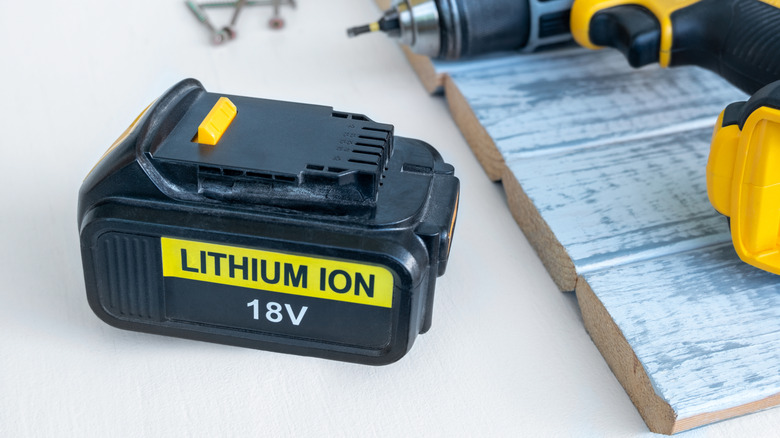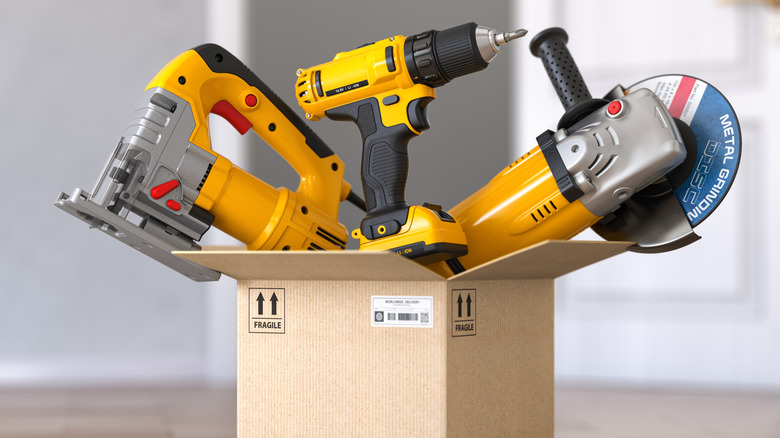What Tool Batteries Are Compatible With Each Other?
We may receive a commission on purchases made from links.
The world of power tool batteries can be confusing, particularly for beginners. There are dozens of different brands and capacities that range anywhere from 12V to 60V (and even higher when combined). Those thinking about purchasing some of the must-buy power tools for first-time homeowners may worry that if they buy from several brands, they will end up with a whole bunch of different batteries and chargers cluttering up the place.
It would be really useful if different tool battery types were compatible with each other. You may even run across articles questioning whether DeWalt batteries work with Kobalt or whether Ryobi's are compatible with Bosch, etc. Sadly, they don't. None of them. At the time of writing, each brand's batteries only work with their own tools.
We recently investigated useful things to know about DeWalt's interchangeable batteries, and the term 'interchangeable' might suggest compatibility with other tools. It does not. DeWalt's FlexVolt batteries, for example, will automatically switch between DeWalt's 20V and 60V tools, but they are not compatible with tools from any other brands.
There are adapters that will do the trick. For example, to fit between a Milwaukee drill and a DeWalt battery. However, while they do work, they increase the bulk of the tool, they are unlikely to transmit the full performance, and they may cause problems. Let's look at the issue in more detail.
Why tool batteries are not compatible, why adapters are limited, and what you can do
Inside any power tool battery are a number of cells. The cells themselves might be the same between two different power tool brands, but then a battery management system (BMS) is added. This digital circuitry interacts with the tool, monitoring performance and adjusting to power demands, and it also regulates charging.
Each manufacturer builds and programs its BMS differently to suit the behavior of its tools, so even if the physical connection was the same (and it usually isn't), the battery from one brand doesn't understand the tool from another. This is also a primary issue with adapters. They might be able to transmit the required voltage, but they don't allow the all-important feedback of information. They are essentially just a dumb plug. Although they work, they often impact performance. They may even cause overheating and risk damaging the tool.
So is there a practical solution? One of the mistakes people make when buying power tools is to adopt a scattergun approach. They buy one tool, then months later purchase something else from a different brand, maybe because it was on sale. A better approach might be to consider the entire battery platform of a particular brand at the outset. Ryobi offers literally hundreds of tools that run off their own battery. DeWalt, Makita, and others are similar in this regard. Researching the range and buying your tools from a favorite brand means compatibility won't be an issue, and you'll likely save money in the long run, too.

